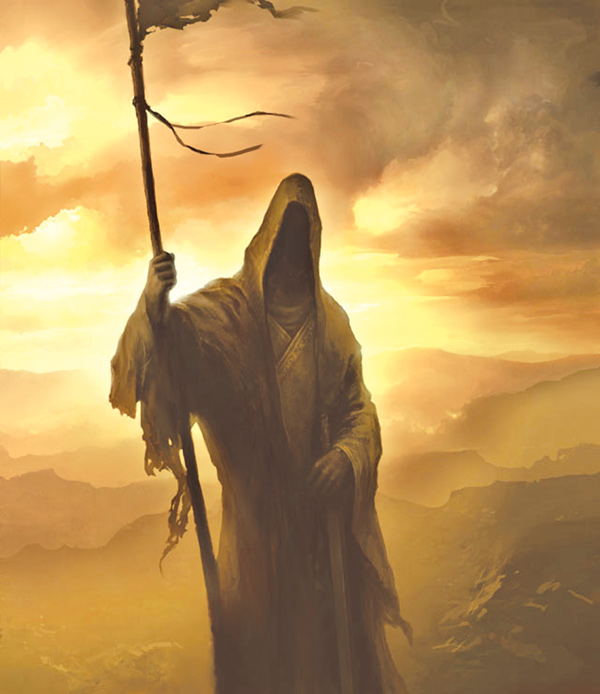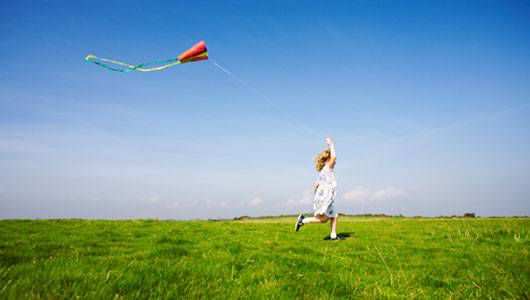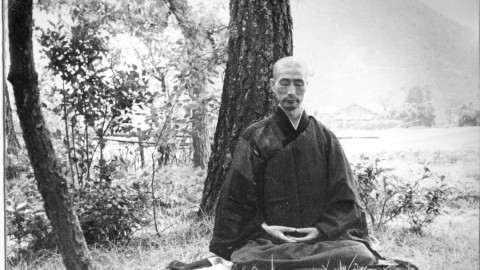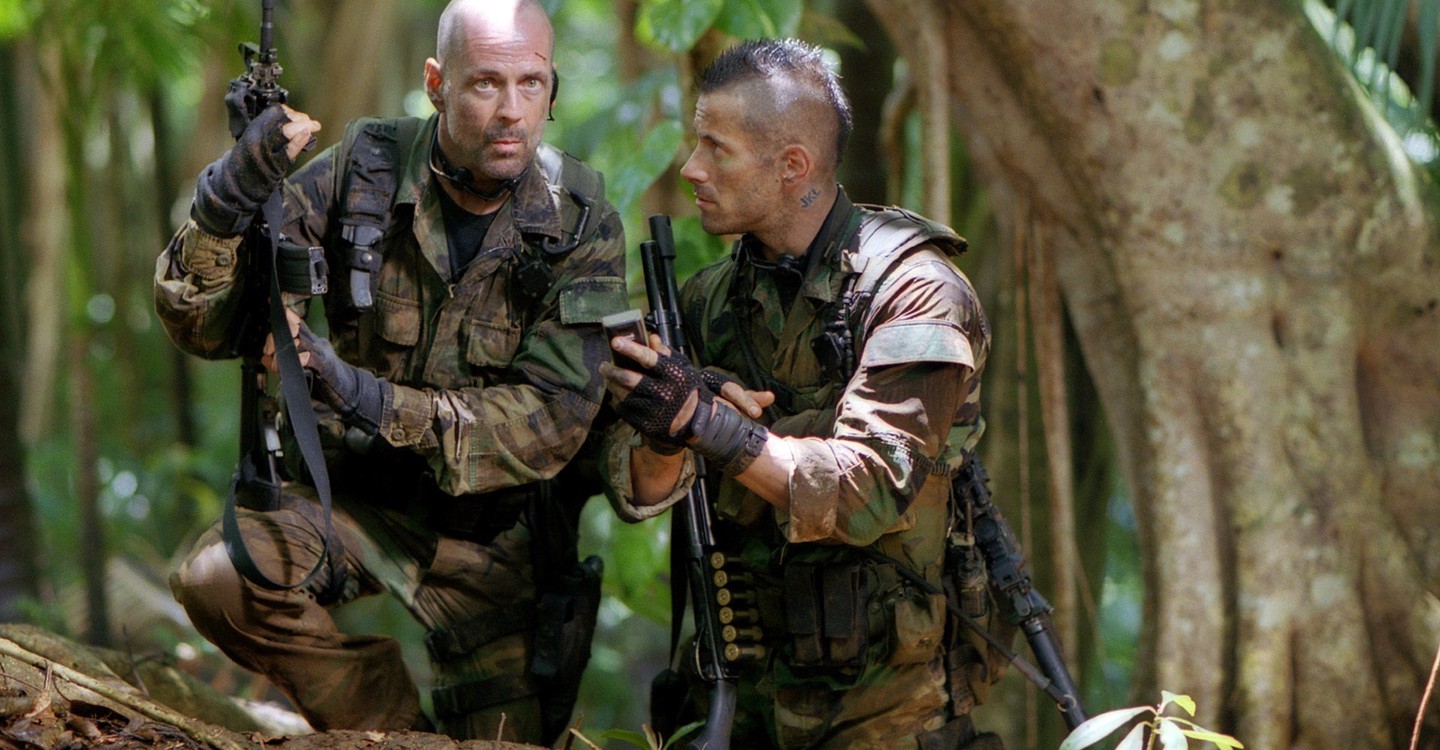There once lived a great warrior. Though quite old, he still was able to defeat any challenger. His reputation extended far and wide throughout the land and many students gathered to study under him.
One day an infamous young warrior arrived at the village. He was determined to be the first man to defeat the great master. Along with his strength, he had an uncanny ability to spot and exploit any weakness in an opponent. He would wait for his opponent to make the first move, thus revealing a weakness, and then would strike with merciless force and lightning speed. No one had ever lasted with him in a match beyond the first move.
Much against the advice of his concerned students, the old master gladly accepted the young warrior’s challenge. As the two squared off for battle, the young warrior began to hurl insults at the old master. He threw dirt and spit in his face. For hours he verbally assaulted him with every curse and insult known to mankind. But the old warrior merely stood there motionless and calm. Finally, the young warrior exhausted himself. Knowing he was defeated, he left feeling shamed.
Somewhat disappointed that he did not fight the insolent youth, the students gathered around the old master and questioned him. “How could you endure such an indignity? How did you drive him away?”
“If someone comes to give you a gift and you do not receive it,” the master replied, “to whom does the gift belong?”
Observe Yourself
While reading the story, who immediately recollected that whenever we lose our temperament immediately we find that we have to compromise on many things. When we have not lost the temperament we have many options to work and negotiate.
Many of you must be knowing that the main teaching of Martial Art is not to attack but to be defensive. Person who knows and consciously uses his energy only in defending himself has abundant energy for oneself. Energy which you are wasting on others same energy will be available to you if you just use your energy for defending yourself.
Same energy if you use it for others you will find anxiety and hyperness in you. You will lose control of yourself. You will be immediately reacting in your action instead of responding. If you use only the required amount of energy i.e.for defending yourself you will find that you are calm and quiet. Balance within yourself. Not lost touch with yourself. So your action will be to respond to the present moment.
Just for the fraction of a second you need before you lose yourself. If you become self-alert immediately you will be defensive instead of attacking mode. First thing you will realize that you are calm and quiet. You can think about the whole circumstances and after proper thought you will be responding.
Instead of thought I will say you will become your own observer. So when you are your own observer you will be act from your consciousness and not from judgements.
In the story, how the old great warrier took everything without judgement. Because he was not judging the other person he has same energy for himself. He had so much energy with him that the young man before attacking physically got defeated. You got exhausted by abusing the old great warrier.
Many times you might have experience that when you are alone in the room or bathroom and if you get even the hint that someone is watching you immediately you become alert towards yourself. No one can watch us all 24X7. Only we can watch ourselves 24X7.
This is the reason why all the spiritual path they guide us to be watchful or be observer of self. If you are an observer of yourself you will be self-alert. This is the first step to move towards yourself. This first step will give you experience of calmness. Remember I am not saying Silence. But Calmness. There is a difference, at the same time it is stepping stone for the silence.
Learning from the story First Move: Observe Yourself
Experience Learning
Essential Life Skill: Self-Observe
Essential life skill of self-observation may well be the most important. It seems so obvious and so simple and yet we are extremely unskilled and unpracticed at paying attention to our own thoughts, feelings, and actions. We tend to operate on “automatic pilot,” as if we have no control. The reality is that unless we know what we are doing, we have little chance of changing it—and often the simple act of becoming aware causes us to do something differently.
When we practice self-observation—noticing what we are thinking, feeling, doing, and imagining—it allows us to become self-aware. When we are aware of what we are doing, we realize that we have choices and choices are what make us powerful.
The very act of noticing how we are feeling can allow us to release or let go of a stuck or stagnant feeling or a self-sabotaging habit. I once worked with my friends daughter who denied everything she was accused of by friends, teachers, and her parents. One day I said, “I want you to simply observe yourself and just notice that you deny what you do.” Of course, her immediate response was, “I do not.” To which I laughed and said, “Notice what you just did!” I assured her that this was not an assignment to change what she did or even judge what she did, but rather to simply notice what she did. Her task was to become conscious so that she was aware of and choosing her behavior rather than operating unconsciously. I cannot say what she did away from me but from that day on, I never heard her deny her behavior again. Just the act of awareness released her from the habit.
The more observant we are, the more we realize that there is a difference between the observed and the observer. Once when I had just gone through a break-up with a boyfriend and was lying on the couch sobbing, I heard a little voice in my head saying, “Wow, you are really crying. You haven’t cried like this since you were a little girl.” There was no judgment of my behavior, only an observation. Even in that moment of despair, I was aware that there was a part of me that was not sobbing or even feeling my pain. It was hard to keep crying and feeling sorry for myself once I knew that there was a part of me that was not buying into my drama at all.
Practicing self-observation allows us to see when we are behaving in alignment with our goals and our values, and when we are not. We notice when we are putting on a show for someone rather than aligning our behavior with the truth. We notice when we are smiling even though we are actually sad, or when we say we are fine even though we are not. We may notice we are pretending to be mad when we really aren’t, just to manipulate someone else’s behavior. Or, we may notice that we are thinking negative thoughts about ourselves, making us feel insecure. We may even notice when we are truly content, peaceful, and joyful.
When we practice self-observation we also start to see when our choices are serving us and when they are not. The labyrinth is another excellent place to practice this skill. As you walk the labyrinth (or as you move through life), notice what you are doing. If you are impatient or are judging others, or judging yourself on the labyrinth, you probably are going to do the same thing outside of the labyrinth. Ask yourself if it is serving you. If it is, continue. If not, experiment with letting that behavior go and trying on a new one.
Tags: Challenger Great Warrior










